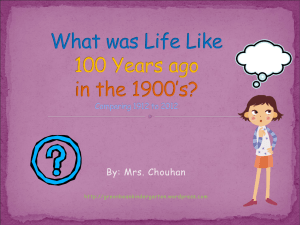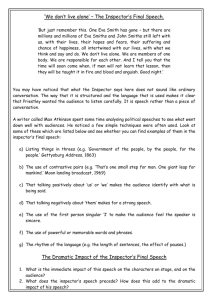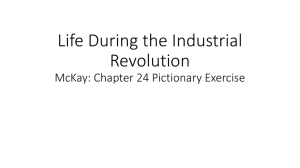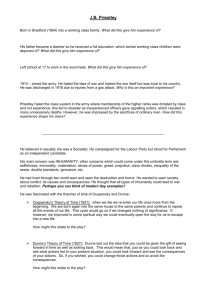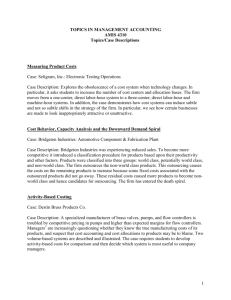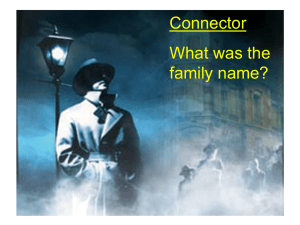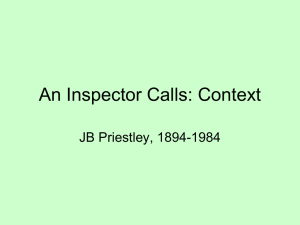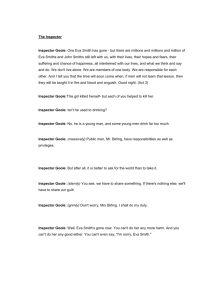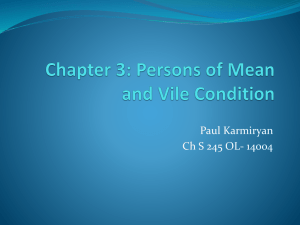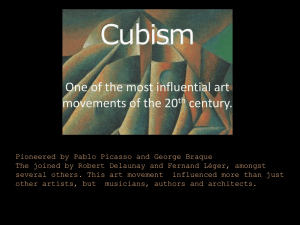Sociology 1912
advertisement
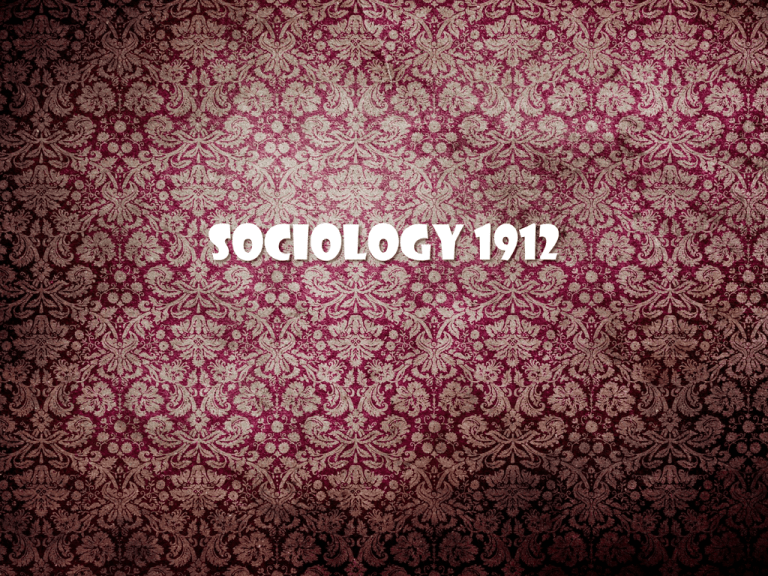
Sociology 1912 CLASS SYSTEM Class System • • • • The British Class system was still as ridged as ever in 1912 as it wasn’t until the wars that the class system was broken down more into what we have today. Though with the arrival of industrial work people in the middle class were able to make a larger profit and some became quite wealthy. Thus their was more room for movement within the middle class as to how influential, powerful, and wealthy you were. The Upper Class was made up of ‘old money’ families who inherited their fortunes and land. The middle class covered a large band of society, in which anyone with an income were able to range from Factory owners, shop owners, factory workers and teachers. Basically anyone who worked was in the middle class. The lower class was made up of people who were unemployed or who earnt the least and were barely able to support themselves in society. Upper Class - Gerald • Inherited money and land. • Didn’t need jobs because they already had money. • Had many large houses, with many servants. • Lead leisurely lives. • Stayed with the lavish Edwardian lifestyle up until the first war broke out. Upper Middle Class - Birlings • The Birlings had made their own money from the industrial revolution. • Even though they were quite wealthy and had influence about the town, they were still considered middle class, as they still worked for their money. • Marrying Sheila to Gerald is the only way to try to move up the class system. Middle class inspector • Most middle class had regular jobs. • Again these range in skill, wages, and status. • As the Inspector is not a real inspector it is important to decide what kind of job he would have, and where this slots into the middle class, but he would be from the middle class. Lower Middle Class - Edna • • There were a great numbers of servants in the early 19th centaury, they were like a washing machine, cook, and cleaner all in one, and so were a need rather than a luxury. Edna would have been known as ‘the girl’ who does everything for a family rather than employing lots of servants. Lots of families did this, even families which quite modest incomes, who owned a stores for example. 'Servants did an incredible amount of work. Jane cooked five-course dinners for seven or eight people as a matter of daily routine. For gfrand dinner parties of twelve or more, each course contained alternatives - two soups, two fish courses, etc. The housemaid cleaned about forty silver photograph frames and toilet silver ad lib, took in and emptied a 'hip bath' (we had a bathroom but my mother considered it a revolting idea to use a bath others had used), brought hot water to bedrooms four times a day, lit bedroom fires in winter, and mended linen etc, every afternoon. The parlormaid cleaned incredibel amounts of silver and washed glasses with loving care in a papier-mache bowl, besides providing perfect waiting at table.‘ – Agatha Christie Lower class – Eva Smith • Working women like Eva (at first) relied on relatives, the YWCA, and boarding houses for shelter, as Eva had no family, she probably paid for housing in a boarding house. • Once she had no income, as there was no support system for the homeless, life looked pretty hopeless. LIFE IN 1912 Home Living • Gas and Electricity had been invented and the rich had access to gas fire, and cooking, as well as electric lights. Brumley would have had elictric street light but the birling's probably still had gas lights. • By 1912 middle class people in Britain usually had bathrooms. The water was heated by gas. Leisure • Games like lawn tennis , snooker, snakes and laders, and ludo were popular. • Biking came into fashion and so did reading Sherlock Holmes, and newly introduced science fiction. • Cinema was also newly invented and was enjoyed just as much as theatre. • Camera’s were also new and were used on popular trips to the sea side. • There were many toys for children including wood and porcelain dolls, and wooden figurines, and play sets like noah’s ark Poverty • In 1912 almost a quarter of the population lived in substandard conditions, earning just enough to survive or less. • The main cause of poverty was low wages, people were not able to earn enough to survive. • This is where Eva was situated and women were paid far less than men. With no man, women would struggle to survive. Government Help • In the 1900’s The government started funding programmes to help support the poor. • In 1906 poor children were given free school meals. • In 1909 pensions started being paid to people over 70, though they were only 5 shillings a week. • Wages councils were also formed, they were allocated to the different industries and created a minimum wage. • in 1911 sickness benefits were introduced. • There were also unemployment benefits , for trades in which unemployment was common (and workers had powerful trade unions) Poverty Life • • • • • • A poor family usually had a n apartment which consisted of two rooms in the downstairs, and two rooms upstairs. Indoor bathrooms were very rare. Very poor families may only be able to afford one room to live in. Food was expensive, making it hard to get enough nutrition, and therefore malnutrition was common. Over half a persons income would be spent on food. Railways were the common form of transport, although cars were becoming more common with the richest families. Trams were also used around town, and buses were starting to be used. Paid holidays only really happened for skilled workers, and other workers had bank holidays. There was more free time opening up, this time was enjoyed with soccer games, and using new public libraries, reading papers also became apart of enjoyable life. In early 1900’s life expectancy in Britain was about 47 for a man and about 50 for a woman.
